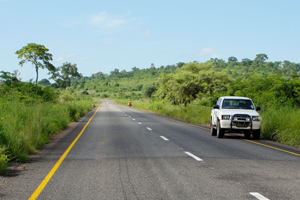Research uptake
Assessing policy options in Mozambique
UNU-WIDER also briefed the Mozambican delegates to the Conference of Parties (COP) 1616 and 17. The MPD organized and executed a one week intensive training programme in the use of a tool, labelled Infrastructure Planning and Support System (IPSS) that incorporates considerations related to climate change in road and bridge investment decisions. Staff from the Ministry of Finance, the Ministry of Public Works, and the Ministry of Planning and Development attended the training. In addition, UNU-WIDER has been engaged in the analysis and elaboration of biofuels policy in collaboration with the MPD and the Ministry of Agriculture. This work has included specific analysis of the gender dimensions of biofuels policy.

The results of the research in Mozambique put particular emphasis on the risks climate change poses to infrastructure. These risks have been literally hammered home by recent repeated flooding events in Southern Mozambique, which have resulted in the costly destruction of transport and urban infrastructure. Unfortunately, the policy response to more frequent and intense flooding is nowhere near as simple as changing a tax rate from X to Y per cent. In Mozambique and elsewhere in Africa, climate change should cause a reassessment of the standards that guide infrastructure construction.
The best policy is to incorporate enhanced climate resilience into new infrastructure and into regular programs aimed atof rehabilitatingon of existing infrastructure. For example, building larger culverts at new road construction likely adds substantial climate resilience at relatively low cost. Nevertheless, appropriate responses are likely to be situation and location specific. The policy challenge is to build sentient institutions that can make appropriate choices, including assessments of alternative choices (such as rail versus road). UNU-WIDER has made the general point to high level officials (such as the Minister of Transportation and Communication) and started work on dealing with the specificities of the infrastructure challenge through the IPSS course.
 Join the network
Join the network